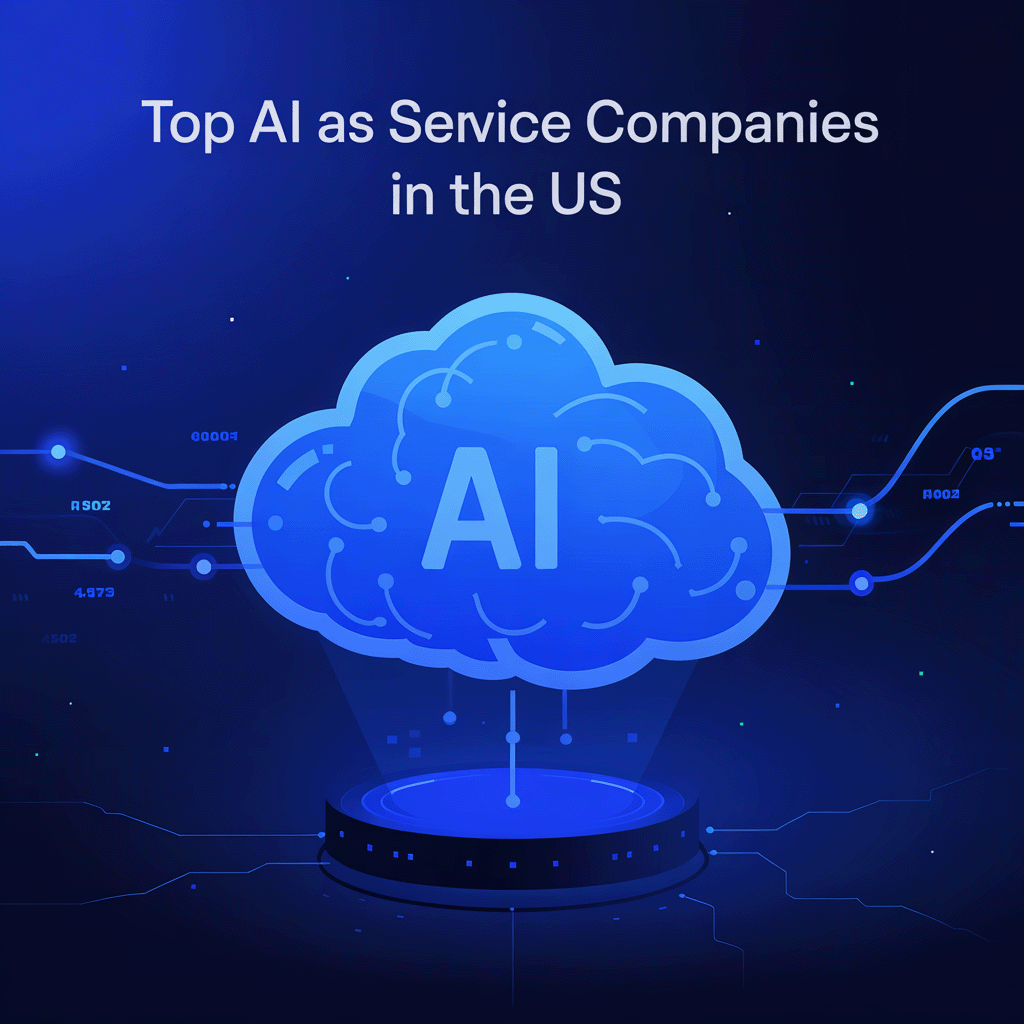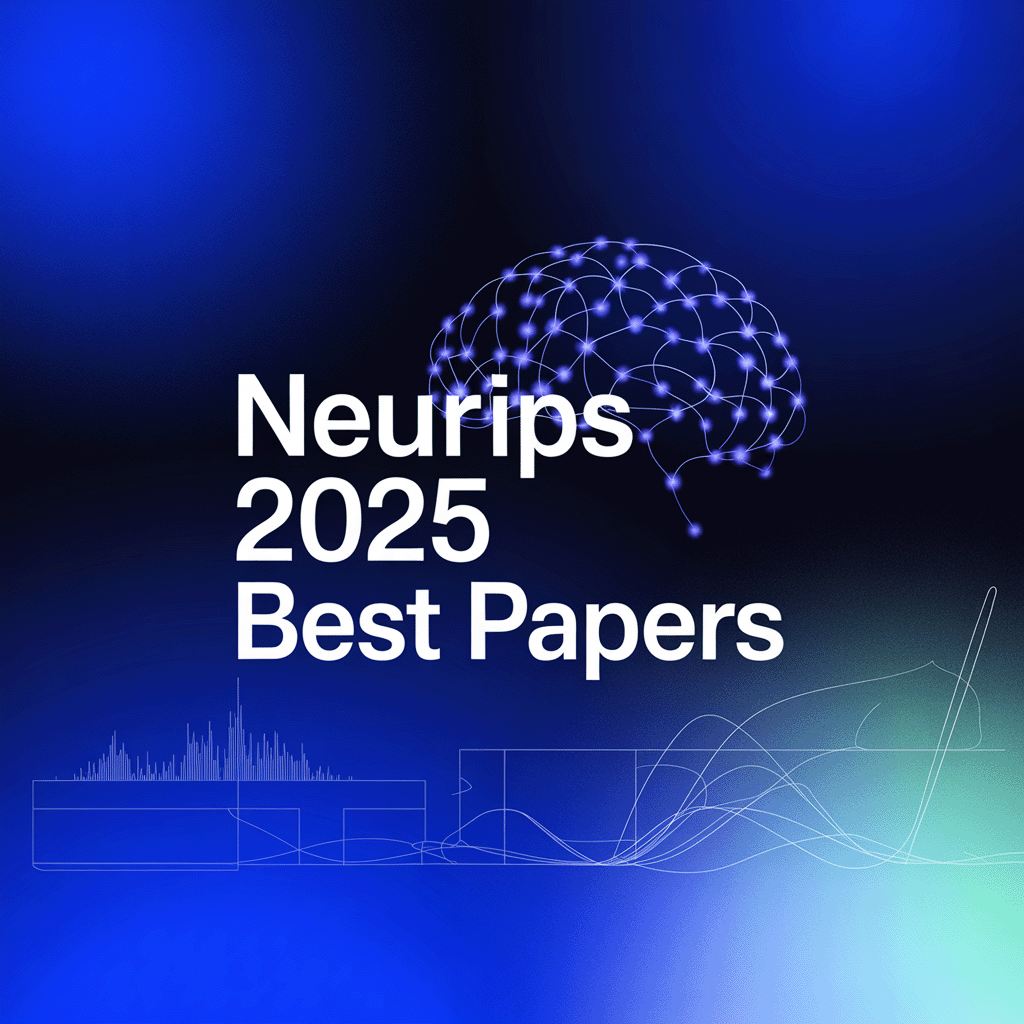You might believe that you navigate your day with total independence from technology. But I challenge that assumption. If you unlocked your phone with a glance this morning, allowed Spotify to choose your next song, or followed a GPS route to avoid traffic, you have already partnered with artificial intelligence half a dozen times before lunch.
The reality is that AI has moved beyond robots and science fiction. It has become the invisible operating system of our daily lives. It is the silent force curating your news, filtering your spam folder, and even stabilizing the power grid that keeps your lights on. While the media focuses on flashy innovations like self-driving cars, I believe the most profound impact is happening in these quiet, mundane moments.
We are currently on a fast track toward 2030, where the market for personal AI tools is projected to hit $1.8 trillion. This figure proves one thing. We are not just using this technology. We are becoming dependent on it.
So how deep does this integration go? In this breakdown, I will reveal the invisible ways AI is shaping your reality right now.
How AI Shapes Your Day from the Moment You Wake Up
AI quietly works in the background to improve small but important aspects of your daily routine. From how you wake up to how you plan your day, it fine-tunes experiences based on your habits.
If you’re wondering how to use AI in daily life, consider voice assistants, smart recommendations, or automated reminders. In fact, how many people use AI daily? Millions interact with AI-powered tools, from chatbots to personalized content feeds.
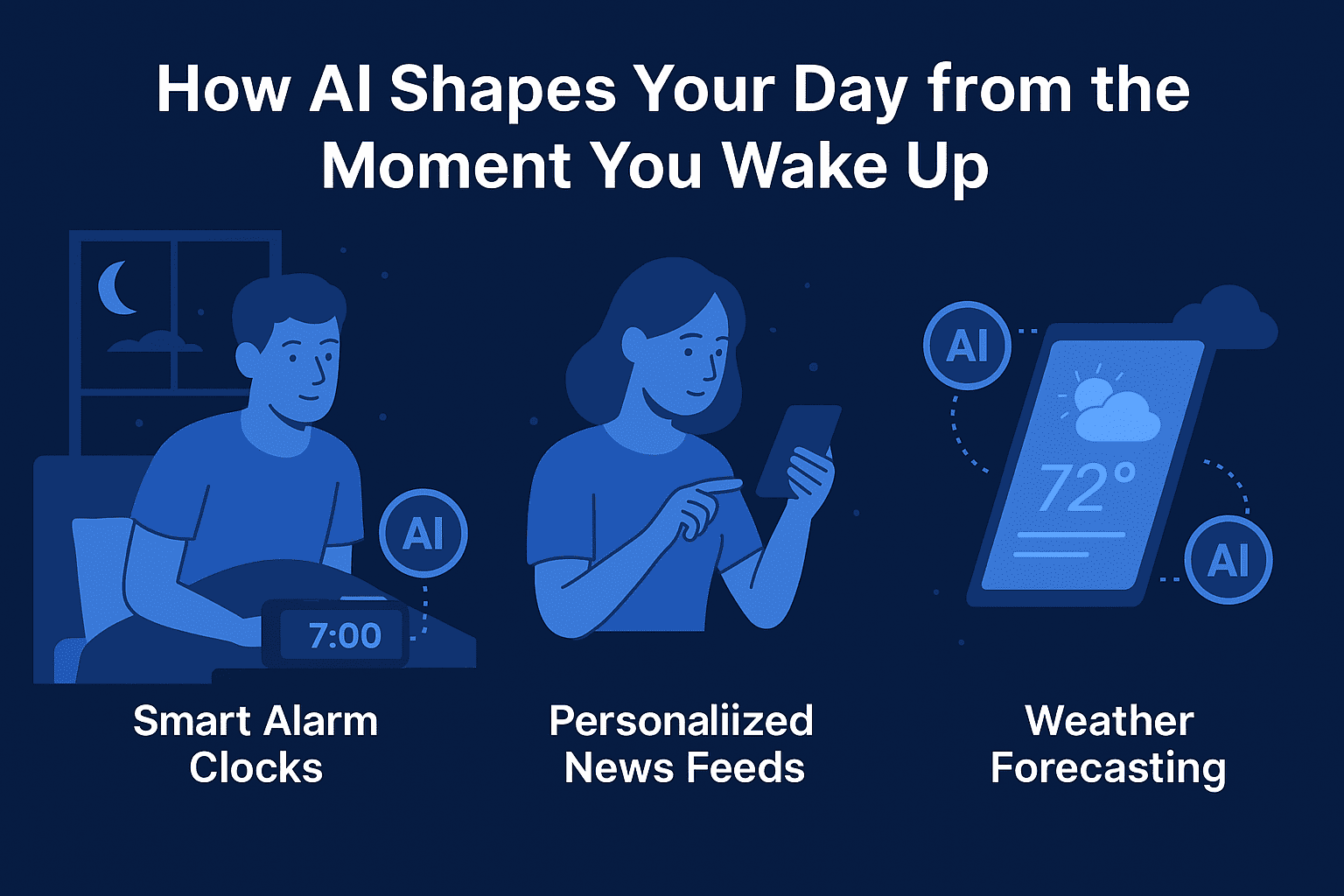
These AI examples in real life highlight how seamlessly artificial intelligence integrates into modern living.
1. Smart Alarm Clocks
Waking up at the right time can set the tone for your whole day. Traditional alarms simply buzz at a set time, but AI-powered alarms do more. They analyze sleep patterns, detect light sleep phases, and wake you up at the best moment for minimal grogginess.
For example, apps like Sleep Cycle and devices like the Google Nest Hub track your breathing and movement to decide when to ring the alarm. If you have had a restless night, they might wake you up a few minutes later to help you feel more refreshed.
Tip: Want to improve your sleep? Pair an AI alarm with a smart lighting system that mimics a natural sunrise for a gentle wake-up.
2. Personalized News Feeds
Ever wonder why your news feed looks different from someone else’s? AI curates news based on what you like to read, click, and share. Google News, Apple News, and even Twitter’s timeline use machine learning to rank news articles according to relevance. This is a great example of AI that we use every day to personalize content.
For instance, if you often read about technology, your AI-powered news feed will prioritize tech updates over sports or politics. It also considers your location—someone in London might see more news about the UK, while someone in New York will get U.S. headlines.
3. Weather Forecasting
Many don’t realize how much AI contributes to weather predictions. AI models process vast amounts of satellite data, atmospheric readings, and historical patterns to forecast local weather with high accuracy.
Unlike old weather prediction methods, AI models adjust in real time based on changing conditions. That’s why your phone’s weather app can alert you about rain an hour before it happens.
| AI in Weather Forecasting | How It Works |
| Severe Storm Warnings | AI detects patterns in wind and pressure data to predict storms faster. |
| Hourly Rain Predictions | Algorithms analyze radar images and humidity to provide real-time rain updates. |
| Air Quality Reports | AI evaluates pollution levels from satellite data for health advisories. |
| Personalized Alerts | Apps like AccuWeather and The Weather Channel send AI-driven location-based warnings. |
| Climate Change Analysis | AI studies global temperature shifts and predicts long-term environmental impact. |
| Travel Weather Forecasts | AI suggests the best time for flights based on expected turbulence and storms. |
Tip: Use AI-driven apps like Dark Sky or ClimaCell for hyper-local weather predictions that adapt to real-time changes.
AI Tools That Enhance Work and Daily Interactions
AI is woven into daily work and social habits, making tasks easier, faster, and more personalized. From filtering emails to planning meetings, AI tools save time and reduce errors.
Where is AI used in everyday life? The answer is everywhere—from smart assistants to fraud detection in banking. AI in our daily lives is growing rapidly, influencing shopping recommendations, navigation apps, and even home security.
In healthcare, how does AI impact our daily lives? Its role is expanding—by 2030, AI is expected to detect life-threatening diseases in their early stages, proving its impact beyond routine tasks.
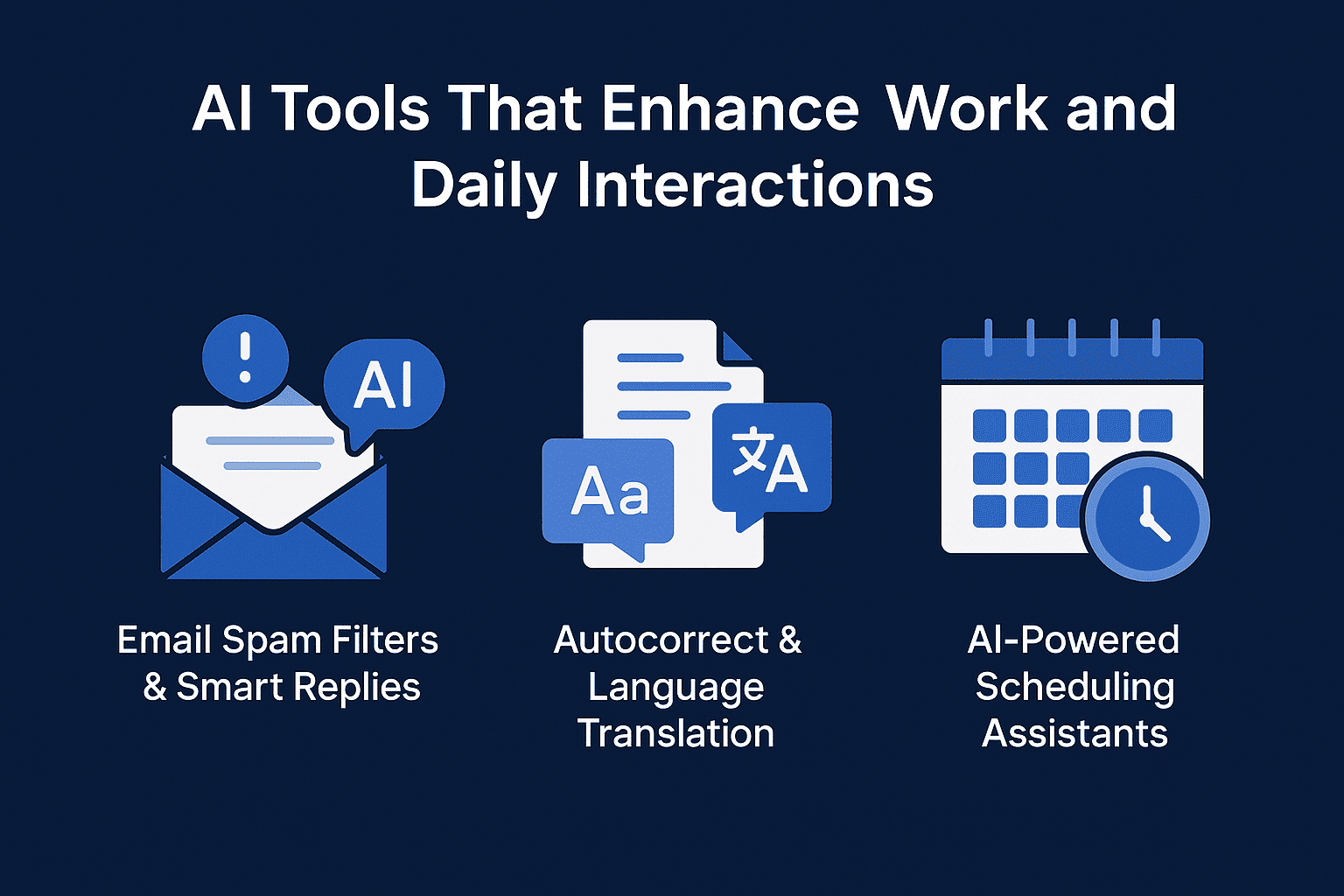
These everyday AI examples show how it improves work and personal interactions.
4. Email Spam Filters & Smart Replies
Sorting through emails is time-consuming, but AI keeps inboxes clean. AI-driven spam filters from Gmail and Outlook analyze message patterns to block phishing attempts and unwanted emails.
Meanwhile, tools like Google’s Smart Reply suggest quick responses based on email content. If someone asks for a meeting, AI proposes, “Sure, what time works for you?” or “I’m available after 2 PM.”
As communication moves beyond email, many businesses are turning to AI text messaging to automate conversations with customers via SMS—improving engagement, response times, and personalization without manual effort.
5. Autocorrect & Language Translation
AI refines writing by fixing typos and grammar errors in real time. Tools like Grammarly and Grammarcheck.ai enhance writing by suggesting sentence structure improvements.
Translation tools like Google Translate and DeepL instantly convert text into different languages, allowing smooth communication across borders. AI voice translation also helps travelers understand local languages through real-time audio conversion.
6. AI-Powered Scheduling Assistants
Managing time is easier with AI-driven scheduling tools. AI assistants like Google Assistant, Calendly, and Microsoft Cortana analyze work patterns and suggest the best meeting slots.
| AI Scheduling Tools | What They Do |
| Google Assistant | Suggests free time slots and sends reminders. |
| Calendly | Automates meeting scheduling based on availability. |
| Microsoft Cortana | Analyzes work habits to optimize schedules. |
| Reclaim AI | Balances personal and work commitments. |
| Clara | Handles email-based scheduling like a human assistant. |
| Clockwise | Automatically adjusts meeting times to reduce conflicts. |
Tip: To get the most from AI scheduling tools, sync them with all calendars to prevent double bookings.
Many industries are leveraging AI agents to streamline complex tasks and decision-making. Businesses investing in AI agent development are seeing automation enhance productivity in ways users may not even notice.
AI-Driven Tools That Make Commuting Easier
AI is changing the way people move, making travel smoother and more efficient. It predicts traffic, improves ride-sharing, and finds the best ticket deals. This is just one example of how AI is helping us in our daily lives.
In fact, AI’s integration into social media has led to a 14% increase in traffic directed to e-commerce sites from TikTok and Instagram during the 2024 holiday season.
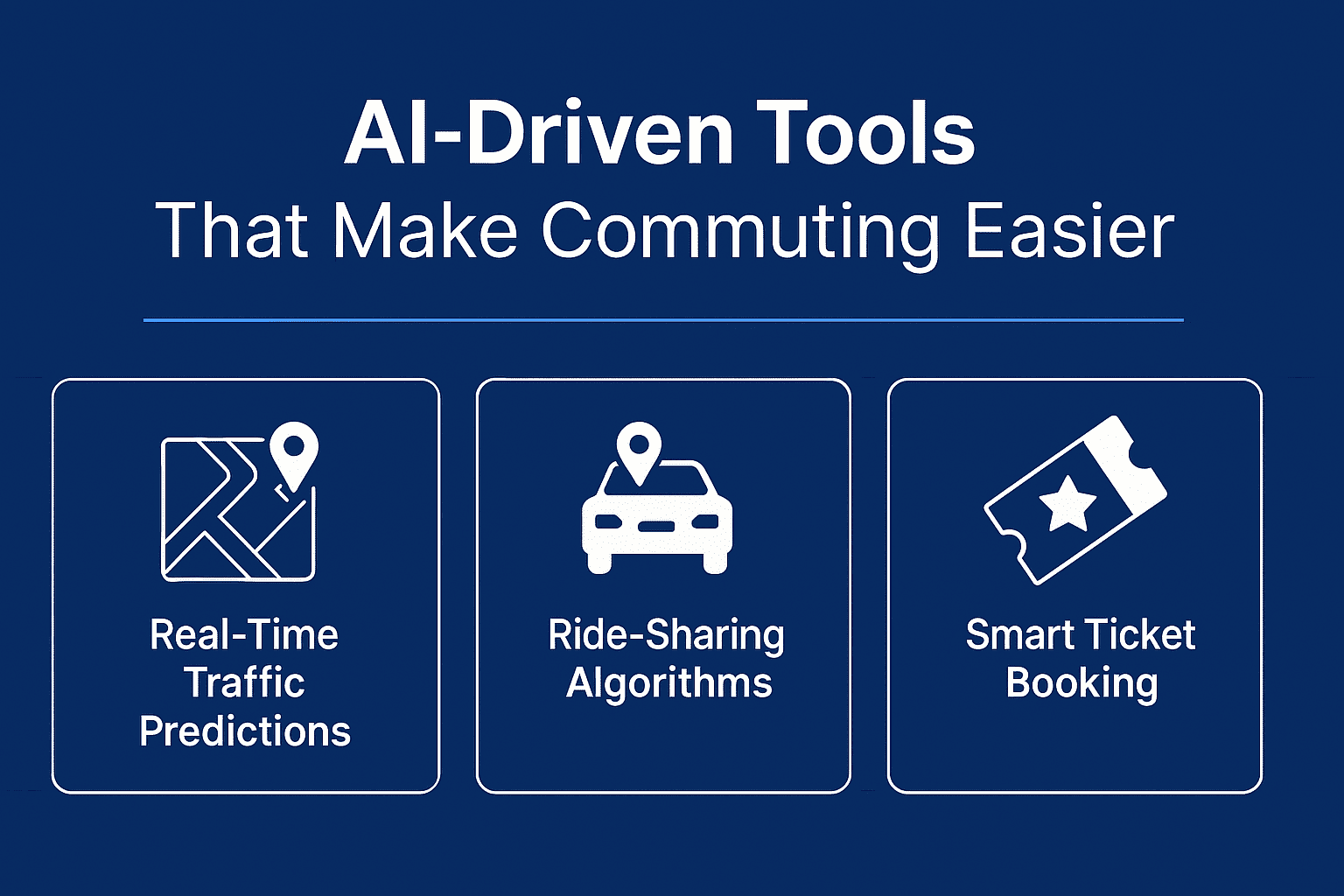
7. Real-Time Traffic Predictions
Navigation apps like Google Maps and Waze rely on AI to process live traffic data and suggest the fastest route. AI factors in accidents, construction, and road closures to reroute drivers in real time.
AI is transforming how people move around cities, improving efficiency and safety. From self-driving cars to predictive traffic systems, AI in transportation is making mobility smarter and more connected.
8. Ride-Sharing Algorithms
Uber, Lyft, and Bolt use AI to match riders with drivers based on location, demand, and traffic. These apps also adjust pricing dynamically—when demand is high, AI raises fares to balance supply.
9. Smart Ticket Booking
AI helps travelers find the best deals on flights, trains, and buses. Booking sites like Expedia and Google Flights use AI to track price trends and predict when fares will drop.
Tip: Set up AI fare alerts to get notified when ticket prices decrease.
AI’s Role in Personalization and Convenience
AI doesn’t just help with work and travel—it also personalizes shopping and entertainment. Many AI applications in real life make daily decisions smoother, from recommending movies to suggesting clothes.

10. AI-Driven Product Recommendations
E-commerce sites like Amazon and Flipkart analyze browsing history and past purchases to suggest relevant items. AI-driven recommendations increase sales and improve the shopping experience.
11. Streaming & Music Playlists
Netflix, YouTube, and Spotify use AI to curate playlists and suggest shows based on viewing history. The more someone watches or listens, the more AI refines recommendations.
| AI Streaming Tools | What They Do |
| Netflix AI | Suggests movies and shows based on past viewing. |
| Spotify AI | Creates personalized music playlists. |
| YouTube AI | Recommends videos tailored to user habits. |
| Amazon Prime Video | Analyzes watch history to suggest content. |
| Apple Music | Uses AI to build customized music mixes. |
| Tidal AI | Enhances sound quality based on listening habits. |
Tip: Create multiple profiles on streaming platforms to get more accurate AI recommendations for different moods.
Big tech companies are pushing AI into mainstream products, making it more accessible. With Apple AI now launched, AI-powered features are becoming part of daily digital interactions.
12. AI-Powered Virtual Stylists
Fashion apps like Stitch Fix and Zalando use AI to suggest outfits based on personal style. AI scans clothing trends and user preferences to recommend what to wear.
Scenario: A user uploads photos of their wardrobe into an AI-powered fashion app. The app suggests new outfit combinations and recommends matching accessories.
Tip: Use AI fashion apps before shopping to find styles that match your preferences.
AI Applications That Improve Well-Being and Lifestyle
AI is shaping modern living by improving health, home management, and even grocery shopping. It helps people track fitness, control their home environment, and manage daily needs with ease. How does AI impact our daily lives? It streamlines tasks, making everyday activities more efficient and convenient.
These examples of AI in daily life show how AI enhances well-being.
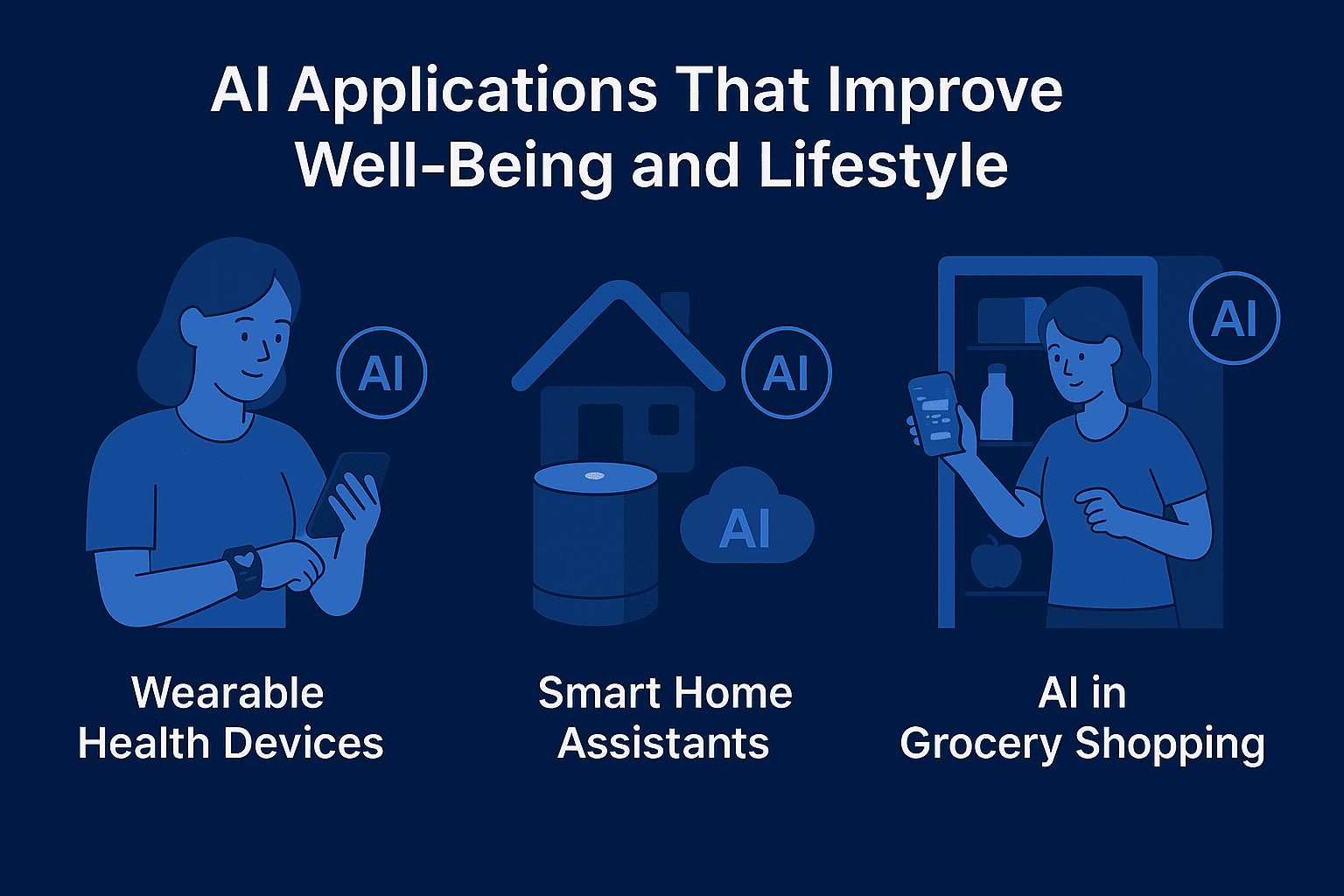
13. Wearable Health Devices
Smartwatches and fitness trackers use AI to monitor heart rate, sleep, and activity levels. AI processes this data to suggest workouts, detect irregular heartbeats, and even predict potential health risks, highlighting the importance of artificial intelligence in our daily lives.
Tip: Use AI-powered health alerts to track wellness trends over time. Small changes in data can help adjust exercise and sleep habits.
AI is quietly shaping everyday life, from smart assistants to behind-the-scenes automation. In healthcare, AI medical diagnosis apps are improving early detection and patient care.
14. Smart Home Assistants
AI-powered home devices control lighting, security, and climate based on daily routines. Smart thermostats learn user behavior to adjust temperatures for comfort and energy savings.
Security systems use AI to detect unusual movements, while voice assistants manage daily tasks, showcasing the daily use of artificial intelligence in modern households.
Tip: Connect multiple smart devices to create a fully automated home setup. AI can manage appliances, security, and energy use efficiently.
15. AI in Grocery Shopping
AI-powered smart fridges and shopping apps track food inventory, suggest meal plans, and remind users when to restock. AI analyzes usage patterns to reduce waste and recommend the best time to buy fresh items.
These are great examples of AI at home, helping users make smarter grocery decisions. Smart fridges and AI-driven shopping apps are just some of the many AI tools improving daily convenience.
Scenario: A smart fridge detects low milk levels and adds it to a digital grocery list. The connected app finds the best price at a nearby store.
Tip: Use AI shopping lists to organize grocery trips efficiently. AI can sort items by store layout to save time.
These are just a few AI applications in real life that work behind the scenes. As you go through your day, AI continues to assist in ways you may not notice—from navigation to spam filtering to online shopping recommendations.
So, next time someone asks, “How is AI used in everyday life?” you’ll have plenty of surprising answers.
Final Thoughts
AI is deeply integrated into our daily lives, shaping how people work, travel, shop, and stay healthy. These real-world applications of AI prove its ability to make life easier and more efficient.
Key takeaways:
- AI streamlines tasks like email filtering, scheduling, and commute planning.
- Smart assistants and personalized recommendations improve convenience, showcasing common examples of artificial intelligence.
- AI-powered health devices track fitness and provide early warnings for health risks, illustrating AI we use every day.
- Automated grocery management helps reduce waste and optimize spending, further emphasizing artificial intelligence in our daily lives.
AI’s influence is growing, and businesses have a unique chance to develop custom AI solutions. The demand for AI-driven products is increasing, and companies that invest in AI now will lead in their industry. From automation to analytics, the daily uses of AI continue to expand across various sectors.
Looking to build an AI-powered solution? Contact LITSLINK—our expert AI team can create advanced AI software tailored to any business need.


